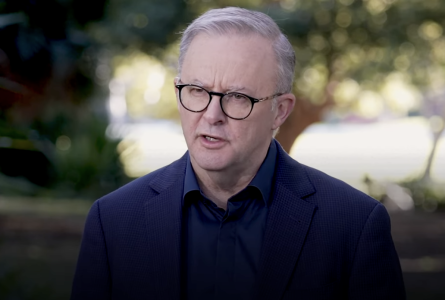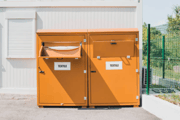Cost of living relief kicks in July 1: What Aussies can expect
- Replies 0
If you’ve been feeling the pinch at the checkout, the petrol station, or when opening your latest electricity bill, you’re not alone. The cost of living has been a hot topic for many of us, and it’s no secret that every little bit of help counts.
Well, we’ve got some good news: starting tomorrow, a raft of new government measures is set to put more money back in the pockets of millions of Australians—including many of our Seniors Discount Club members!
What’s Changing on July 1?
Prime Minister Anthony Albanese and his government are rolling out a suite of cost-of-living relief measures designed to help everyday Aussies.
'The Albanese Labor Government is delivering more real, practical and ongoing help with the cost of living for Australians, with more support set to roll out a week from today,' said Treasurer Jim Chalmers. 'This is more responsible, meaningful hip-pocket help for households.'
Whether you’re working, retired, supporting a family, or helping out with the grandkids, there’s a good chance you or someone you love will benefit from these changes.
Let’s break down what’s coming your way.

1. Electricity Rebates and Other Relief
While the $75 quarterly electricity rebate is set to continue until the end of 2025, it’s worth noting that this is just one of several ongoing supports designed to help with rising utility costs.
If you haven’t already, make sure you’re receiving all the rebates and concessions you’re entitled to—especially as a senior!
2. Family Tax Benefit Increases
Families receiving Family Tax Benefit Part A will see the maximum payment for children under 13 rise to $227.36 per fortnight, and for those aged 13 or over, up to $295.82 per fortnight.
Family Tax Benefit Part B is also increasing, with the maximum rate now $193.34 per fortnight (or $134.96 for families with a youngest child aged five or over).
3. Superannuation Boosts
Compulsory employer super contributions are rising from 11.5 per cent to 12 per cent. This means more money going into your retirement savings—great news for those still working or with family members in the workforce.
Plus, superannuation will now be paid on top of paid parental leave, helping new parents build their nest egg even while taking time off to care for a new bub.
4. Paid Parental Leave Improvements
Paid parental leave is increasing from 22 to 24 weeks, giving new parents more time at home with their little ones.
The income limits for eligibility are also rising, with the individual cap now at $180,007 and the family cap at $373,094. This means more families will qualify for this important support.
5. Minimum Wage Increase
Australia’s 2.9 million workers on awards or the minimum wage will see a 3.5 per cent pay rise from July 1. That’s a bigger bump than the current inflation rate of 2.4 per cent meaning real-world gains for those who need it most.
The new minimum hourly rate will be $24.95, translating to a full-time weekly wage of $948, or $49,296 a year. For the 200,000 Aussies on the minimum wage, that’s an extra $1,669 a year in your pocket. 'The Albanese Labor Government is delivering what we said we would at last month's election, rolling out billions of dollars' worth of responsible support from 1 July,' Chalmers said.

6. Tradie Apprenticeship Incentives
Know a young person considering a trade? New apprentices in housing construction will receive up to $10,000 in incentive payments over the course of their apprenticeship.
Payments are staggered at $2,000 after six months, one year, two years, and three years—helping to ease the financial burden as they learn their trade.
In earlier news: Millions of Aussies set for a cash boost—here’s what it could mean for you
7. Student Debt Relief
For those with children or grandchildren at university, there’s more good news: the government is cutting student debt by 20%, averaging a $5,520 reduction per person. This is a significant saving for families supporting students, and it’s backdated to June 1.
8. Tax Cuts on the Horizon
While most of the immediate relief starts tomorrow, there’s more to look forward to.
From July 1, 2026, the tax rate for workers earning $18,201 to $45,000 will drop from 16% to 15%, saving $268 a year. In 2027, it drops again to 14%, bringing total relief to $536 over two years. Every taxpayer earning above $45,000 will also benefit from these cuts.
Also read: ‘The new super tax has been designed to excuse long-serving politicians': And it’s causing outrage
With so many changes happening, it’s a great time to review your entitlements. Are you getting all the rebates, supplements, and concessions you qualify for? If you’re unsure, reach out to Services Australia or your local Centrelink office, or ask in the comments below—our community is always happy to help!
Related story: ‘Many Australians continue to experience financial challenges’: Meanwhile, MPs just scored a $15k raise

We’d love to hear from you! Are you or your family set to benefit from these new measures? Do you think the government is doing enough to help with the cost of living? Share your thoughts, experiences, and questions in the comments below. Let’s support each other and make sure everyone gets the help they deserve!
Well, we’ve got some good news: starting tomorrow, a raft of new government measures is set to put more money back in the pockets of millions of Australians—including many of our Seniors Discount Club members!
What’s Changing on July 1?
Prime Minister Anthony Albanese and his government are rolling out a suite of cost-of-living relief measures designed to help everyday Aussies.
'The Albanese Labor Government is delivering more real, practical and ongoing help with the cost of living for Australians, with more support set to roll out a week from today,' said Treasurer Jim Chalmers. 'This is more responsible, meaningful hip-pocket help for households.'
Whether you’re working, retired, supporting a family, or helping out with the grandkids, there’s a good chance you or someone you love will benefit from these changes.
Let’s break down what’s coming your way.

Aussies on the minimum wage and those on awards will receive a 3.5% pay rise from 1 July, outpacing inflation and lifting the hourly minimum wage to $24.95. Image source: Anthony Albanese MP / Youtube.
1. Electricity Rebates and Other Relief
While the $75 quarterly electricity rebate is set to continue until the end of 2025, it’s worth noting that this is just one of several ongoing supports designed to help with rising utility costs.
If you haven’t already, make sure you’re receiving all the rebates and concessions you’re entitled to—especially as a senior!
2. Family Tax Benefit Increases
Families receiving Family Tax Benefit Part A will see the maximum payment for children under 13 rise to $227.36 per fortnight, and for those aged 13 or over, up to $295.82 per fortnight.
Family Tax Benefit Part B is also increasing, with the maximum rate now $193.34 per fortnight (or $134.96 for families with a youngest child aged five or over).
3. Superannuation Boosts
Compulsory employer super contributions are rising from 11.5 per cent to 12 per cent. This means more money going into your retirement savings—great news for those still working or with family members in the workforce.
Plus, superannuation will now be paid on top of paid parental leave, helping new parents build their nest egg even while taking time off to care for a new bub.
4. Paid Parental Leave Improvements
Paid parental leave is increasing from 22 to 24 weeks, giving new parents more time at home with their little ones.
The income limits for eligibility are also rising, with the individual cap now at $180,007 and the family cap at $373,094. This means more families will qualify for this important support.
5. Minimum Wage Increase
Australia’s 2.9 million workers on awards or the minimum wage will see a 3.5 per cent pay rise from July 1. That’s a bigger bump than the current inflation rate of 2.4 per cent meaning real-world gains for those who need it most.
The new minimum hourly rate will be $24.95, translating to a full-time weekly wage of $948, or $49,296 a year. For the 200,000 Aussies on the minimum wage, that’s an extra $1,669 a year in your pocket. 'The Albanese Labor Government is delivering what we said we would at last month's election, rolling out billions of dollars' worth of responsible support from 1 July,' Chalmers said.

Paid parental leave is increasing to 24 weeks (up from 22), with superannuation now included, and income limits for eligibility rising to benefit more families. Image source: Anthony Albanese MP / Youtube.
6. Tradie Apprenticeship Incentives
Know a young person considering a trade? New apprentices in housing construction will receive up to $10,000 in incentive payments over the course of their apprenticeship.
Payments are staggered at $2,000 after six months, one year, two years, and three years—helping to ease the financial burden as they learn their trade.
In earlier news: Millions of Aussies set for a cash boost—here’s what it could mean for you
7. Student Debt Relief
For those with children or grandchildren at university, there’s more good news: the government is cutting student debt by 20%, averaging a $5,520 reduction per person. This is a significant saving for families supporting students, and it’s backdated to June 1.
8. Tax Cuts on the Horizon
While most of the immediate relief starts tomorrow, there’s more to look forward to.
From July 1, 2026, the tax rate for workers earning $18,201 to $45,000 will drop from 16% to 15%, saving $268 a year. In 2027, it drops again to 14%, bringing total relief to $536 over two years. Every taxpayer earning above $45,000 will also benefit from these cuts.
Also read: ‘The new super tax has been designed to excuse long-serving politicians': And it’s causing outrage
With so many changes happening, it’s a great time to review your entitlements. Are you getting all the rebates, supplements, and concessions you qualify for? If you’re unsure, reach out to Services Australia or your local Centrelink office, or ask in the comments below—our community is always happy to help!
Related story: ‘Many Australians continue to experience financial challenges’: Meanwhile, MPs just scored a $15k raise
Key Takeaways
- Aussies on the minimum wage and those on awards will receive a 3.5% pay rise from 1 July, outpacing inflation and lifting the hourly minimum wage to $24.95.
- Paid parental leave is increasing to 24 weeks (up from 22), with superannuation now included, and income limits for eligibility rising to benefit more families.
- New apprentices in housing construction will pocket up to $10,000 in incentive payments during their apprenticeship, with other family payments such as Family Tax Benefit Part A and B also set to rise.
- Further income tax relief is on the way, starting from July 2026, but university student debt will be cut by 20% (on average $5,520) as part of Labor’s promised cost-of-living support.
We’d love to hear from you! Are you or your family set to benefit from these new measures? Do you think the government is doing enough to help with the cost of living? Share your thoughts, experiences, and questions in the comments below. Let’s support each other and make sure everyone gets the help they deserve!
Last edited:







